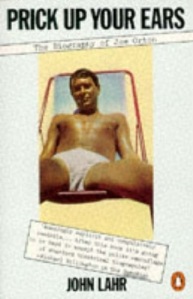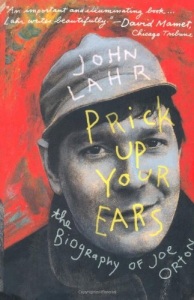 We liked the feel-good, positive factor, some of us remembering the 1980s as a very bleak decade.
We liked the feel-good, positive factor, some of us remembering the 1980s as a very bleak decade.
Some people belong nowhere and search for identity – the gay person as much as someone of an ethnic minority.
This film received an Oscar nomination for Best Screenplay in 1984. This was the first British film to openly depict a gay romance.
It is set in London during the Thatcher era and focuses on Omar, a young Pakistani man living in London, and his reunion and eventual romance with his old friend, a named Johnny. The two become the caretakers and business managers of a launderette originally owned by Omar’s uncle Nasser.
The plot addresses several issues of the time, including homosexuality and racism, depicted within the social and economic climate of Thatcherism. Also alienation, exclusion, conflict and and sense of belonging.
Race: Omar’s achievements come despite his minority ethnic status in 1980s British society, striking a chord with the neoliberal ideal expressed by his uncle, Nasser, who states there’s “no such thing as race in the new enterprise society.” Yet the beating which Johnny, Omar and his Uncle Salim face at the hands of white nationalists suggests otherwise. The reality of Thatcherism, far from heralding the erasure of racial distinctions, was that of escalating racist violence, provoked by increasing economic inequality and symbolic legislation.
Throughout the film, the fascists reappear. In one scene before their attack, where they stand, armed and waiting, around the laundrette. Never assume that xenophobic nationalism will forever remain on the fringe.
At the climax, one of the fascists takes a metal bin and hurls it into Omar’s laundrette window. Though they had previously found employment there, it was of a menial nature, presumably low paid, and failed to mitigate their repulsion at working for a Pakistani who, as one of them articulates, “came over here to work for us.”
Sex: British Asians were popularly regarded as dowdy, puritanical and family-focussed rather than hedonistic. Yet here, Omar has a relationship with someone who’s not his fiancée, with a man rather than a woman, and with a poorly educated skinhead of the kind many immigrants would have feared and despised in equal measure. This same-sex relationship is depicted explicitly – at a time when much of the conservative establishment decried homosexuality in the name of Victorian values, and when the popular press used the AIDS epidemic as an excuse to castigate gay people. Though occasionally fraught, the leads’ romance is mostly fun, certainly not tragic.
Contrasts: The movie is not concerned with plot, but with giving us a feeling for the society its characters inhabit. Modern Britain is a study in contrasts, between rich and poor, between upper and lower classes, between native British and the various immigrant groups — some of which, such as the Pakistanis, have started to prosper. To this mixture, the movie adds the conflict between straight and gay.
A critique of postcolonial Britain is achieved through Kureishi’s battery of conflicts—between whites and Asians, between whites and whites, between the Asian and African diasporas, between Asian brother and brother, between Asian parents and their adult children, between men and women. The fact that Omar and Johnny’s sexual relationship is not a source of social conflict, unlike that of Nasser and Rachel, is significant. It’s a masterful stroke of gay-straight taboo reversal that proposes that behaviour conventional society has historically vilified may be the most likely to promote harmony.
The two men rekindle their teenage relationship when they are alone together in the laundrette. It is illustrative of how they escaped the ethical and moral boundaries that both society and Omar’s family had imposed on them. When they are left alone in the laundrette, they are able to surpass Omar’s family’s cultural expectation of a heterosexual arranged marriage between Omar and Tania. Similarly, Johnny is able to detach himself from his racist group of resentful white working class peers and form a relationship with the supposed “other”
Newly employed by Omar, he acquires a sense of self-worth and—if not quite a butterfly emerging from a chrysalis—swaps his too-long-lived-in tribal uniform for a brighter, cleaner look. Observed by Omar in the moments before the laundrette’s opening, he mounts the table where customers will fold their spin-dried clothes and stands there like an Adonis, the brief pose showing that the slumped, disconsolate figure he was at the start of the film has regenerated himself. He has also become the film’s moral centre, for he cautions Omar, who has “big plans” for taking over more laundrettes, not to become greedy. The film shares Hussein’s belief that, for the children of immigrants, education is the key to social enlightenment and integration.
Early images of Johnny reveal that he is a youth in transition—one who rejects the system crushing his generation by rejecting the street violence that results indirectly from Conservative policies. Newly employed by Omar, he acquires a sense of self-worth and—if not quite a butterfly emerging from a chrysalis—swaps his too-long-lived-in tribal uniform for a brighter, cleaner look. Observed by Omar in the moments before the laundrette’s opening, he mounts the table where customers will fold their spin-dried clothes and stands there like an Adonis, the brief pose showing that the slumped, disconsolate figure he was at the start of the film has regenerated himself. He has also become the film’s moral centre, for he cautions Omar, who has “big plans” for taking over more laundrettes, not to become greedy. The film shares Hussein’s belief that, for the children of immigrants, education is the key to social enlightenment and integration.
The disgruntled Tania (Rita Wolf), Nasser’s daughter, is the pivotal female character. Kureishi introduces her as the Ali family conscience and scold, who despises her father for cheating on her mother, Bilquis (Charu Bala Chokshi). She’s also a disruptive comic force. She flashes her breasts at Omar to distract him from listening to her father smugly hold forth to his well-heeled cronies in his den. In a temper, she upends on Bilquis’s lap the witch’s potion she’s concocting to poison Rachel. “I’d rather drink my own urine,” she tells Nasser when he presses her and Omar to get married. Tania is not about to become a submissive Pakistani wife like Bilquis, so she leaves home. When last seen, she is standing on a train station platform. A touch of magical realism removes her from patriarchal control.
The laundrette’s “Powders” neon sign, which makes its exterior resemble that of a small cinema. The interior is deep, as are those of many repertory theatres, and a “widescreen” window separates the washing, drying, and folding area (the space where the “action” takes place) from the back office (a darkened space from which the action can be viewed). Looking at—and through—the window, Omar admires Johnny doing his chores and standing on the table. As Johnny and Omar have sex in the back room before the opening, they become an audience watching Rachel and Nasser dancing in the front. The laundrette’s paying customers contribute to the notion of its being an emporium in which secrets are revealed, stories evolve, and events come to a head. This visual self-consciousness extends beyond the laundrette: at home or in cars, the characters frequently look at other characters through windows or at their own reflections. It’s a hall of mirrors for existential self-interrogation that demands the audience enter in.
The laundrette works as some kind of melting pot: a place where race, gender, and sexuality do not play a role, and where one has the opportunity to reinvent himself.
They chose blue to paint the facade: on the one hand this is the colour of hope, on the other hand, the fact they have chosen a pale version might not only underline their sexuality, but also the fact that there is still a long way to go in terms of equality and acceptance – especially considering that this peaceful atmosphere is only found inside the building. Outside it, there is still a multiethnic working-class structure which is completely fragmented, each element fighting against the others.
This simple laundrette in a shabby neighbourhood represents the rise, fall, and return to former ideals in one everyday place. It seems like the characters have literally washed their hands clean in the end, or, as Oliva describes, “the intelligent metaphor of the laundry seen as a means of cleaning up the dirt of filthy society”.
At the end, Britain’s rich are still getting richer and its poor are still getting poorer. The beautiful laundrette has been trashed, Nasser and Rachel have parted, and Tania has evaporated. Only Omar and Johnny’s unity is hopeful—they’re left flicking water at each other in a final positive image, the cares of the day forgotten with its soapsuds.
p. 85 Nasser thinks of becoming a sadhu – isn’t that Hindu and he’s a muslim?
Omar’s father and uncle do, as it seems, represent the two stages of the laundrette: the hardship and wasted potential
The uncle, Nasser, symbolizes the self-made man who took advantage of the situation and managed to establish a flourishing business, by “squeezing the tits of the system”. He is not entirely fond of Britain, but is, however, aware of the new possibilities that he knows how to use for himself in the “damn country which we hate and love.”
Omar’s father takes a rather different approach, having given up on finding a job in his original profession as a journalist, and now lives on welfare, which he hates so much. Having a Pakistani father and a white, British mother, who committed suicide, Omar’s mixed identity is determined from birth. Not only is he mixed in terms of race, but he is also confronted with two conflicting male role models and two very different cultures. As Pascual further states, the trains that pass outside the family’s window might symbolise the fluidity of Omar’s hybrid identity’
When the launderette has its grand opening, he shows up after everyone else has already left. For the left-wing socialist, who spends all his time in their dark apartment, this might be a moment of both: pride and sadness. One the one hand, he might be full of joy, seeing how well his son has adapted to life in Britain and how he has managed to build up a successful business; on the other hand, he might be sad to see how Omar has turned into a capitalist, making the most of Thatcher’s England.
…“never indulges in the kind of patronizing sentimentality that turns the Pakistanis into either social problems or mere victims of English racism.”
Kureishi’s work was heavily criticised, most notably by Ruvani Ranasinha, as approaching all issues from a male point of view, while he has been accused of mistreating his female characters
Many black people and particularly Asians, hated it. The reason for this, I think, is because they refused to look at the film in any other way than as a piece of realism, that is to say, a film that attempted an accurate representation of its subject
One segment of the Asian community, however, had an overwhelmingly positive response to the film: gay South Asians throughout the diaspora. Trikone, a magazine for the South Asian queer diaspora, devoted almost an entire issue to the film in 2001 stating “the kiss between Johnny and Omar has, to many a queer South Asian, become the moment they came out to themselves”. In the same issue actor Gordon Warnecke, who played Omar, recounts how many gay South Asians have told him they identified with his character and were grateful for the film. In fact, gay communities internationally—South Asian and otherwise—responded positively to the film and it continues to be cited as a favorite gay romance. (In 2004, the Advocate named My Beautiful Laundrette one of the ten best gay or lesbian films of all time.) Part of this popularity results from the fact that rather than depicting its characters as conflicted over their sexual identities—as, for instance, the British film Victim (1961) did—the film shows Johnny and Omar simply as two men in love. Some viewers praised the film precisely because of this ease, while others objected, claiming it was unrealistic.
The film depicts gray streets, nearly empty businesses, and people wandering aimlessly. Nothing is growing or thriving in this environment. Kureishi and Frears’ vision of Thatcher’s England is one of economic devastation with little hope for change. Only one space stands out in this sea of gray: the transformed laundrette.
The conflicts between their respective communities are not healed via their romance—except symbolically inside the fantasy space of the laundrette. Thus, My Beautiful Laundrette avoids the traps some other national romances fall into and demonstrates the potential of the queer national romance to re-imagine the nation, a potential critics have not recognized. Insofar as the imagined community of the nation is itself a kind of collective fantasy, the film is able to do real work through its fantasy—even if the utopic space of the laundrette and the relationship it enables are ultimately unsustainable. The film uses its audience’s desire to see this fragile space survive to create an emotional investment in a new conception of Britishness. Queer romances contest homophobic nationalisms as they revise imperial fantasies of domination, re-imagining citizenship in radical new ways.
 Quotations from the Introduction:
Quotations from the Introduction:
In 1967, Duncan Sandys said: ‘The breeding of millions of half-caste children would merely produce a generation of misfits d create national tensions.’
I wasn’t a misfit; I could join the elements of myself together. It s the others, they wanted misfits; they wanted you to embody within yourself their ambivalence.
I saw the taking up of Islam as an aberration, a desperate fantasy of world-wide black brotherhood; it was a symptom of extreme alienation. It was also an inability to seek a wider politi1 view or cooperation with other oppressed groups– or with the working class as a whole — since alliance with white groups was necessarily out of the question.
therefore the fact that I couldn’t rightfully lay claim to either place.
This made me think about the close-bonding within the families and about the intimacy and interference of an extended family and a more public way of life. Was the extended family worse than the little nuclear family because there were more people to dislike? Or better because relationships were less intense?
I compared the collective hierarchy of the family and the permanence of my family’s circle, with my feckless, rather rootless life in London, in what was called ‘the inner city’. There I lived alone, and lacked any long connection with anything. I’d hardly known anyone for more than eight years, and certainly not their parents. People came and went. There was much false intimacy and forced friendship. People didn’t take responsibility for each other.
The great master as fallen. Now it was seen as strikebound, drug-ridden, riotorn, inefficient, disunited, a society which had moved too suddenly from puritanism to hedonism and now loathed itself.
These were: the idea of secular institutions based on reason, not revelation or scripture; the idea that there were no final solutions to human problems; and the idea that the health and vigour of a society was bound up with its ability t tolerate and express a plurality of views on all issues, and tha these views would be welcomed
It was that the English misunderstood the Pakistanis because they saw only the poor people, those from the villages, the illiterates, the peasants, the Pakistanis who didn’t know how t use toilets, how to eat with knives and forks because they we poor. If the British could only see them, the rich, the educated the sophisticated, they wouldn’t be so hostile. They’d know what civilized people the Pakistanis really were. And then they’d like them.
Those Pakistanis who have worked hard to establish busines now vote Tory and give money to the Conservative Party. T interests are the same as those of middle-class business people
But what is the Conservative view of them? Roger Scruton in his book The Meaning Of Conservatism sets out the case against m respect and understanding.
Firstly he deplores all race relations legislation and tries to justify certain kinds of racism by making it seem a harmless preference certain kinds of people. He calls this preference a ‘natural off of allegiance.
The Labour Party has failed to show that it is serious about combating racism and serious in representing the black working class.
There is real defensiveness and insecurity, a Victorian fear of revealing so much as a genital of an idea, the nipple of a notion or the sex of a syllogism. Where sexual exhibitionism and the discussion of positions and emissions is fashionable, indeed orthodox, thinking and argument are avoided.
I would rather walk naked down the street than stand up for the National Anthem.
Two days after my return I took my washing to a laundrette and gave it to the attendant only to be told she didn’t touch the clothes of foreigners: she didn’t want me anywhere near her blasted laundrette
I was in a rage. I thought: who wants to be British anyway? Or as a black American writer said: who wants to be integrated into a burning house anyway?
In his 1941 essay ‘England Your England’ Orwell says: ‘the gentleness of the English civilisation is perhaps its most marked characteristic’. He calls the country ‘a family with the wrong members in control’ and talks of the ‘soundness and homogenicity of England’.
Elsewhere he considers the Indian character. `maniacal suspiciousness’ which, agreeing, he claim Forster in A Passage To India, he calls ‘the be vice . . .’ But he has the grace to acknowledge in-] Counting Niggers’ that the overwhelming bulk 1 proletariat [lives] . . . in Asia and Africa’.
But this is niggardly. The main object of his praise is `tolerance’ and he writes of ‘their gentle manners’ that this aspect of England ‘is continuous, it sue future and the past, there is something in it that persists.
Tolerant, gentle British whites have no idea he tolerance is experienced by blacks here. No idea a hostility and contempt directed against black people state and individual alike in this land once describe being not one of ‘rubber truncheons’ or `Jew-baiters but of flower-lovers’ with ‘mild knobbly faces’. But in pm the flower-lovers are all gone, the rubber truncheons or Jew-baiters are at large, and if any real contemporary a given to Orwell’s blind social patriotism, then `tolerance’ must be seriously examined for depth substantial content.
In the meantime it must be made clear that black `tolerance’ in this particular condescending way It isn’t this particular paternal tyranny that is wanted, since ut is adjustments to British society that have to be made.
despite the efforts of touring companies and so failed to get its ideas beyond a small enthusiastic audience.
The film started off as an epic. It was to be like The Godfather, opening in the past with the arrival of an immigrant family in England and showing their progress to the present.
old shop we built a laundrette of such authenticity that people came in off the street with their washing;
Quotations from the film:
I don’t like to see one of our blokes [Johnny] grovelling to Pakis. Look they came over here to work for us. That’s why we brought them over, okay?
What chance would an Englishman give a leftist communist Pakistani on newspapers?”
“What chance a racist Englishman has given us that we haven’t taken it from him with our hands?”
“Families. I hate families.”
“And you must understand, we’re of different generations; different classes. Everything is waiting for you. The only thing that has ever waited for me, is your father.”
He adores you. I expect he wants you to take over the businesses. He wouldn’t think of asking me.”
“You tell him: you go to college. He must have knowledge. We all must, now. In order to see clearly what’s being done and to whom in this Country, right?”
Nasser: I thought you two were getting married.
Omar: Yes, any day now.
Tania: I’d rather drink my own urine.
Omar: I hear it can be quite tasty with a slice of lemon.
Nasser: [to Omar] In this damn country, which we hate and love, you can get anything you want. It’s all spread out and available. That’s why I believe in England. Only you need to know how to squeeze the tits of the system.
Nasser: [to Johnny] I’m a professional businessman not a professional Pakistani. And there is no question of race in the new enterprise culture.
Papa: You must be getting married. Why else would you be dressed like an undertaker on holiday?
Omar: Going to Uncle’s house, Papa. He’s given me a car.
Papa: What? The brakes must be faulty. Tell me one thing because there’s something I don’t understand, though it must be my fault. How is it that scrubbing cars can make a son of mine look so ecstatic?
Omar: It gets me out of the house.
Papa: Don’t get too involved with that crook. You’ve got to study. We are under siege by the white man. For us education is power. [Omar shakes his head at his father] Don’t let me down.
Johnny: [driving Cherry and Salim home, Omar stops by a bunch of street kids, one of whom is Johnny. Omar gets out of the car to talk to Johnny] [indicating his friends] Like me friends?
Omar: Ring us then.
Johnny: I will. [indicates the car where Cherry is getting very angry] Leave ’em there. We can do something. Now. Just us.
Omar: I’m being promoted. To Uncle’s laundrette.
Papa: [throwing a pair of socks to Omar] Illustrate your washing methods!
Johnny: [Omar is showing Johnny round the laundrette] I’m dead impressed by all this.
Omar: You were the one at school. The one I liked.
Johnny: [sarcastically] All the Pakis liked me.
Nasser: [Nasser bursts into the room where Johnny and Omar made love just moments before] What the hell are you doing? Sunbathing?
Omar: Asleep, Uncle. We were shagged out.
Salim: I want to talk to Omar about business.
Johnny: I dunno where he is.
Salim: Is it worth waiting?
Johnny: In my experience, it’s always worth waiting for Omo.
Johnny: Fuck me! What’s she doing with that mouse?
Nasser: [whilst having sex with his lover] Christ, you move like a liner.
Nasser: Yes… But first we must marry Omar off. [Cut to Omar and Johnny making love in the back room]
Johnny: Ain’t nothing I can say to make it up to you. There’s only things I can do to show you… That I am with you.
Nasser: [to Omar] Nothing but a toilet and a youth club. A constant boil on my bum.
Papa: [to Omar] Work now till you go back to college. And I’m fixing you up with a job with your uncle.
Nasser: [to Omar] Okay, I charge you basic rent. The key you keep.
Papa: [on the phone] Oh, one thing more, try to fix him up with a nice girl. I’m not sure his penis is in full working order.
Johnny: [to Omar] A laundrette as big as the Ritz. Oh yes.
Nasser: What are you doing, boy?
Omar: It will be going into profit any day now. Partly because I hired a bloke of astounding competence and strength of body and mind.
Gang Member: Why are you working for these people? Pakis.
Johnny: It’s work, that’s why.
Nasser: Where are those two buggers?
Papa: [to Omar] I don’t want my son in this underpants cleaning condition.
[first lines] Johnny: We’re moving house.
[last lines] Johnny: Don’t you be touching me!
Omar: What are you going to do with me?
Nasser: What am I going to do with you? Turn you into something damn good.
Nasser: [to Omar] On the other hand a little water on the brain might clear your thoughts.
Salim: [to Omar] You’re one of us now Omar.
Nasser: What bloke?
Omar: He’s called Johnny.
Johnny: Today has been the best day.
Omar: Yeah, almost the best day.
Nasser: [to Omar] Bring Tania over here. Marry her. Well, what’s wrong with her? When I say marry her, you damn well do it. Be nice to her, pressure off my fucking head. Your penis works doesn’t it? Get going!
Omar: It took you a while to get onto us.
Salim: Wanted to see what you’d do. How’s your Papa? So many books written and read. Politicians sought him out. Bhutto was his close friend. But we’re nothing in England without money.
Papa: This damn country has done us in. That’s why I’m like this. We should be there. Home.
Nasser: But that country’s been sodomised by religion. It’s beginning to interfere with the making of money. Compared with everywhere… it’s a little heaven, here.
Johnny: We’ll just have to do a job to get the money.
Omar: I don’t want you going back to all that!
Johnny: Just to get us through, Omo. We’re going to go on. You want that, don’t you?
Omar: Yeah. I want you.
Omar: You know who I saw today? Johnny. Johnny!
Papa: The boy who came here dressed as a fascist with a quarter-inch of hair?
Omar: He was a friend once, for years.
Papa: There were times when he didn’t deserve your admiration so much.
Omar: Christ, I’ve known him since I was five!
Papa: He went too far.
Omar: Where did you go? You just disappeared.
Johnny: Drinking, I went. With my old mates. It ain’t illegal.
Omar: Of course it is, laundrettes are a big commitment. Why aren’t you at work?
Johnny: It’ll be closing time soon. You’ll be locking the place up, and coming to bed.
Omar: No, it never closes. One of us has got to be there. That way, we begin to make money.
Johnny: You’re getting greedy.
Omar: I want big money. I’m not going to be beat down by this country.
Salim: There’s some things between them I’m looking into.
Tania: I’m going. You can come.
Johnny: No good jobs like this around.
Tania: Omar just runs you around everywhere, like a servant.
Johnny: I’ll stay here with my friend and fight it out.
Tania: My family, Salim and all… will swallow you up like a little kebab.
Johnny: I couldn’t leave him. Not now. Don’t ask me to. You ever touched him?
Omar: When we were in school, you and your friends were kicking me around the place. And what are you doing now? Washing my floor and that’s how I like it.
Return to the home page
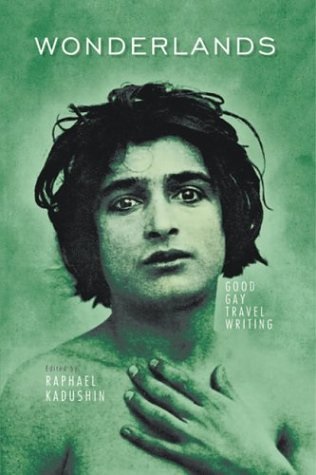 Highly disparate pieces, some fiction, most not, with the feel of places, rather than mere descriptions of them. It all looks rather like some project done for the sake of it, though there are some gems e.g. Toibin’s and the one about the Isle of Lewis.
Highly disparate pieces, some fiction, most not, with the feel of places, rather than mere descriptions of them. It all looks rather like some project done for the sake of it, though there are some gems e.g. Toibin’s and the one about the Isle of Lewis.
 We liked the feel-good, positive factor, some of us remembering the 1980s as a very bleak decade.
We liked the feel-good, positive factor, some of us remembering the 1980s as a very bleak decade. Quotations from the Introduction:
Quotations from the Introduction: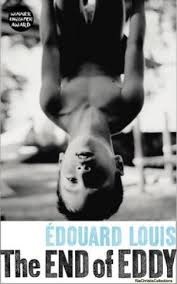 Set in Hallencourt in the Somme, a small and isolated factory town of 1,300 people where Louis grew up, the book is a stark tale of his life below the poverty line, punctuated by his father’s drunken violence – the rage of the humiliated working-class male: racism, homophobia and casual daily brutality.
Set in Hallencourt in the Somme, a small and isolated factory town of 1,300 people where Louis grew up, the book is a stark tale of his life below the poverty line, punctuated by his father’s drunken violence – the rage of the humiliated working-class male: racism, homophobia and casual daily brutality.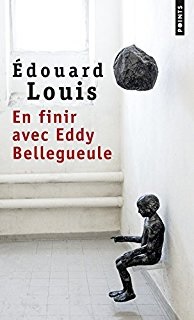 Quotations:
Quotations: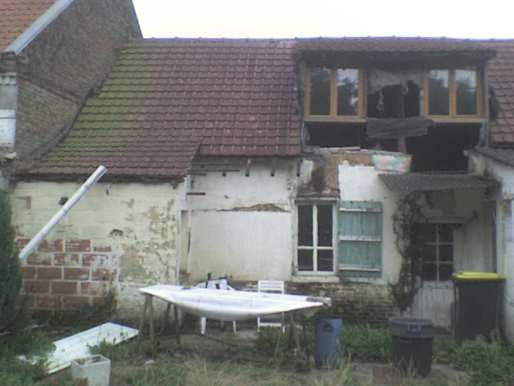 “On the day when the amount of the allowance at the start of the school year was raised, my father, with a joy we rarely saw because he usually played at being the man of the house who could not show his feelings, shouted: ‘Sunday, we’re going to the seaside.’ And indeed we went, six of us in a car big enough for five. I rode in the boot.
“On the day when the amount of the allowance at the start of the school year was raised, my father, with a joy we rarely saw because he usually played at being the man of the house who could not show his feelings, shouted: ‘Sunday, we’re going to the seaside.’ And indeed we went, six of us in a car big enough for five. I rode in the boot.
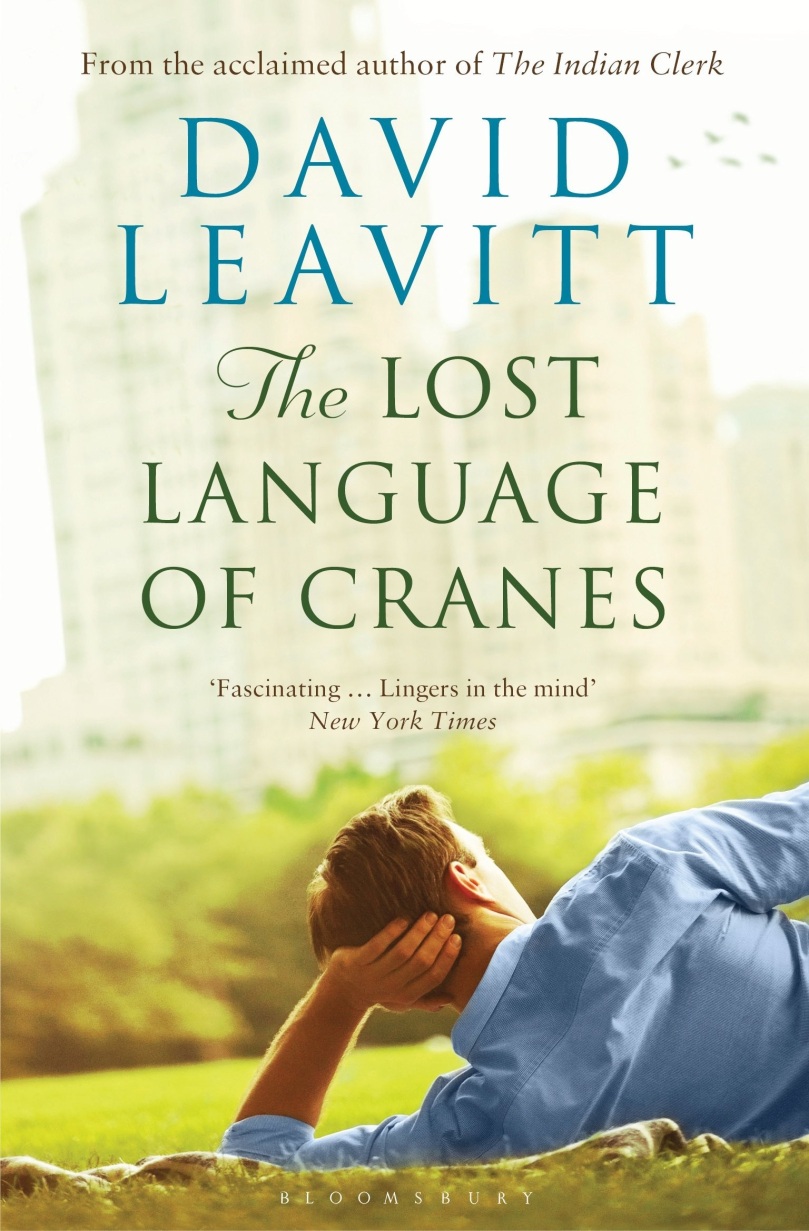 Quotations:
Quotations: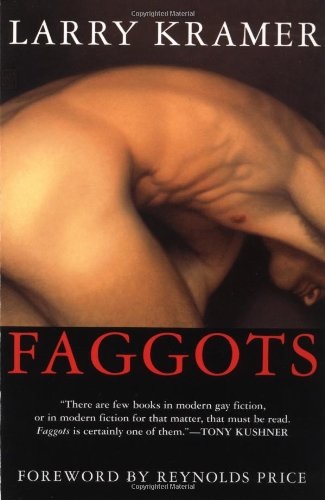 This book portrayed the 1970s New York’s very visible gay community in a time before AIDS. The novel’s portrayal of promiscuous sex and recreational drug use provoked controversy, not least amongst gay men.
This book portrayed the 1970s New York’s very visible gay community in a time before AIDS. The novel’s portrayal of promiscuous sex and recreational drug use provoked controversy, not least amongst gay men.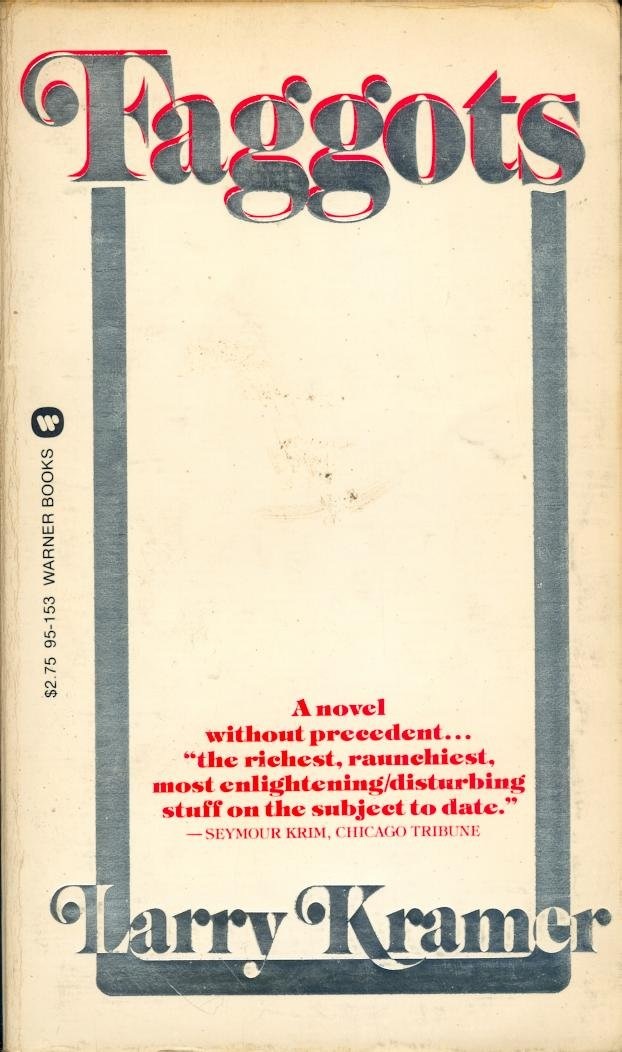 Quotations:
Quotations: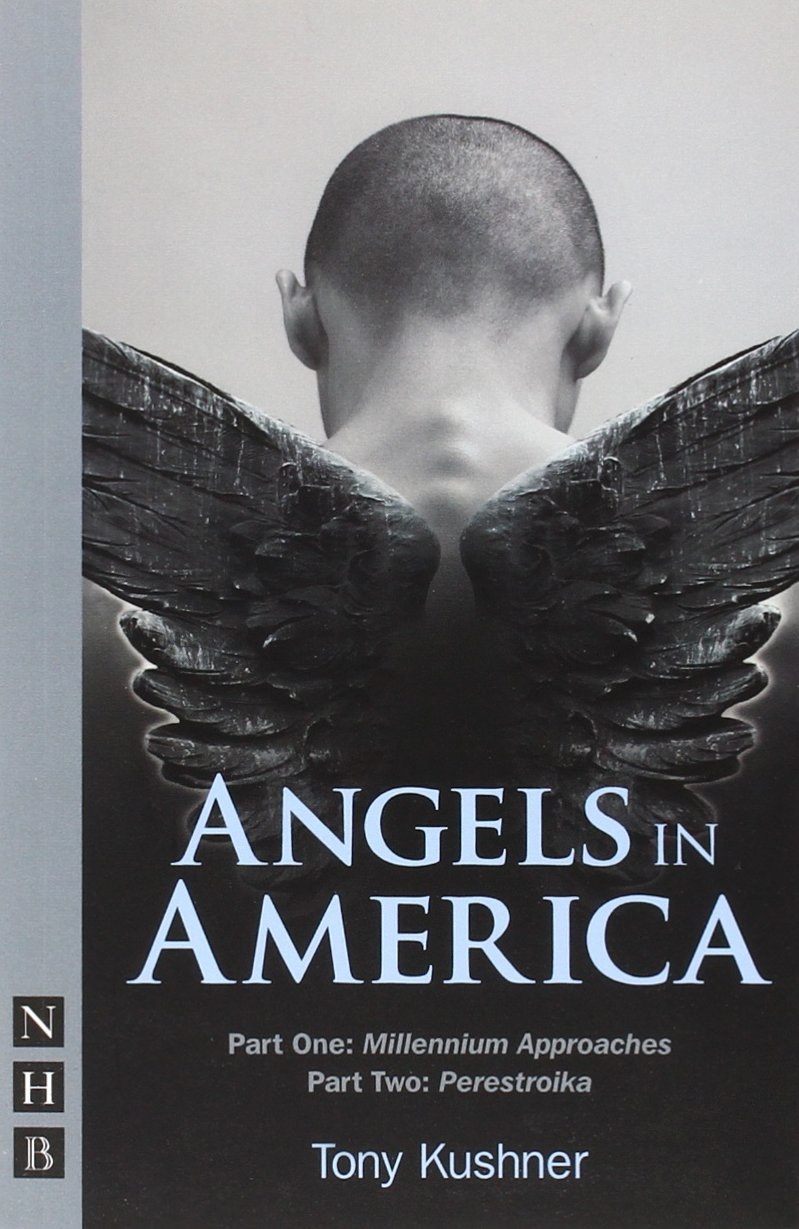 We planned to discuss the script and the film of this but there was considerably less interest than expected so we aborted our plans – so this review is written in personal capacity.
We planned to discuss the script and the film of this but there was considerably less interest than expected so we aborted our plans – so this review is written in personal capacity.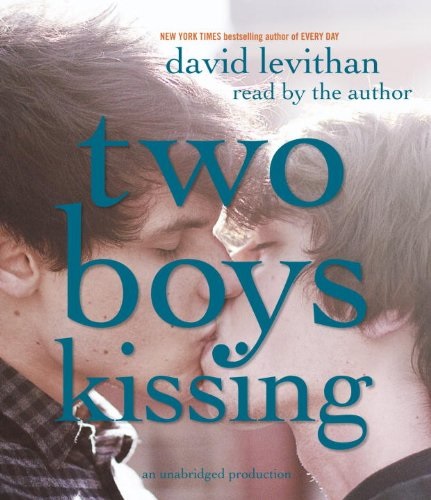
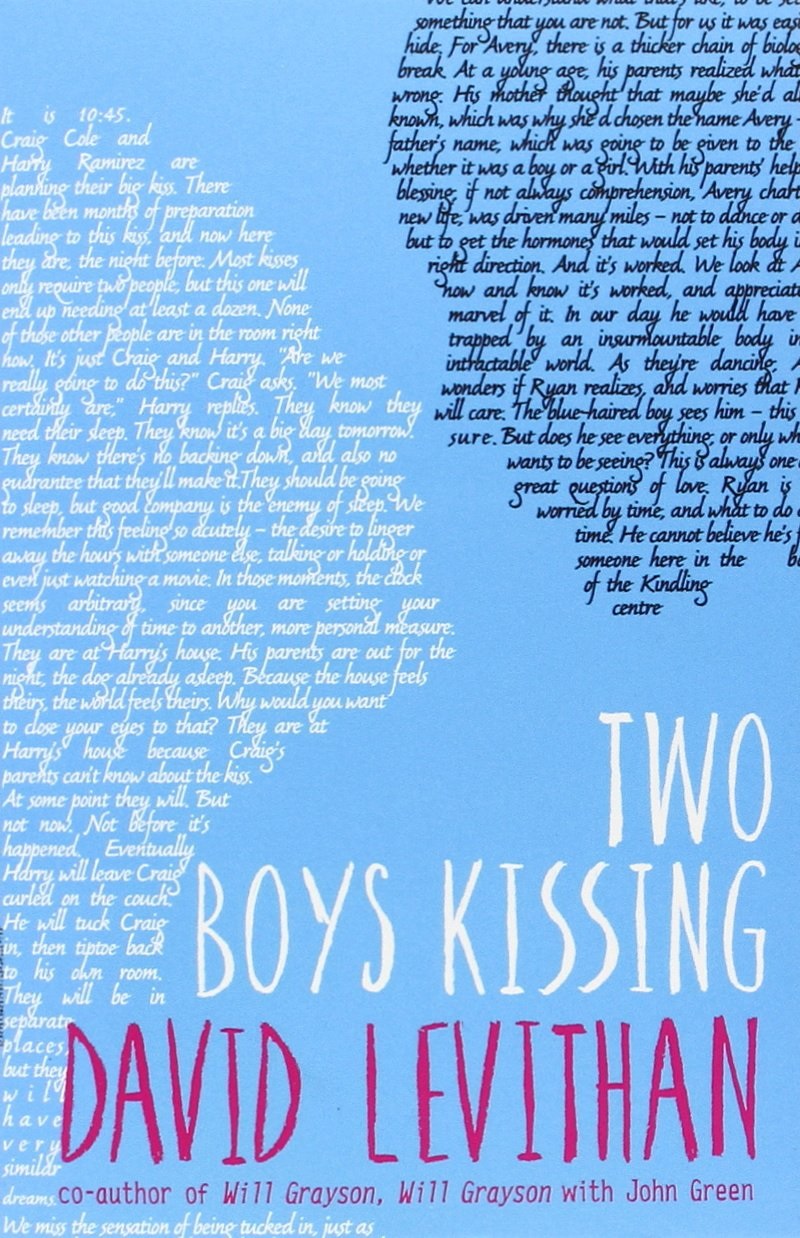 Quotations:
Quotations: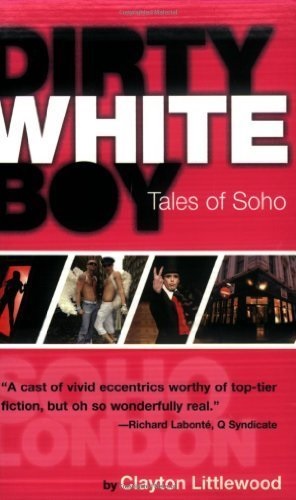 (Not discussed by the group but written in a personal capacity.)
(Not discussed by the group but written in a personal capacity.)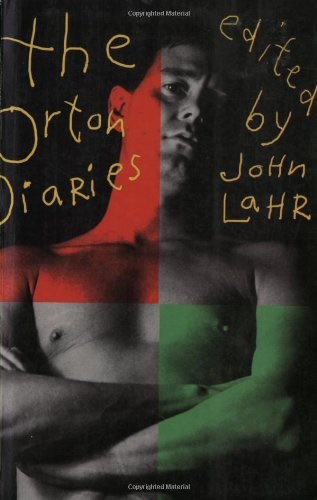 So that’s what happens when you fail the 11+ (Orton) and your father commits suicide (Halliwell).
So that’s what happens when you fail the 11+ (Orton) and your father commits suicide (Halliwell).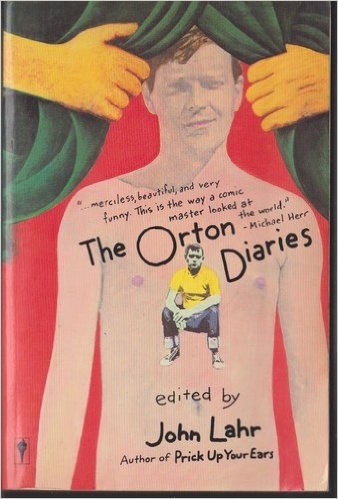 Quotations:
Quotations: